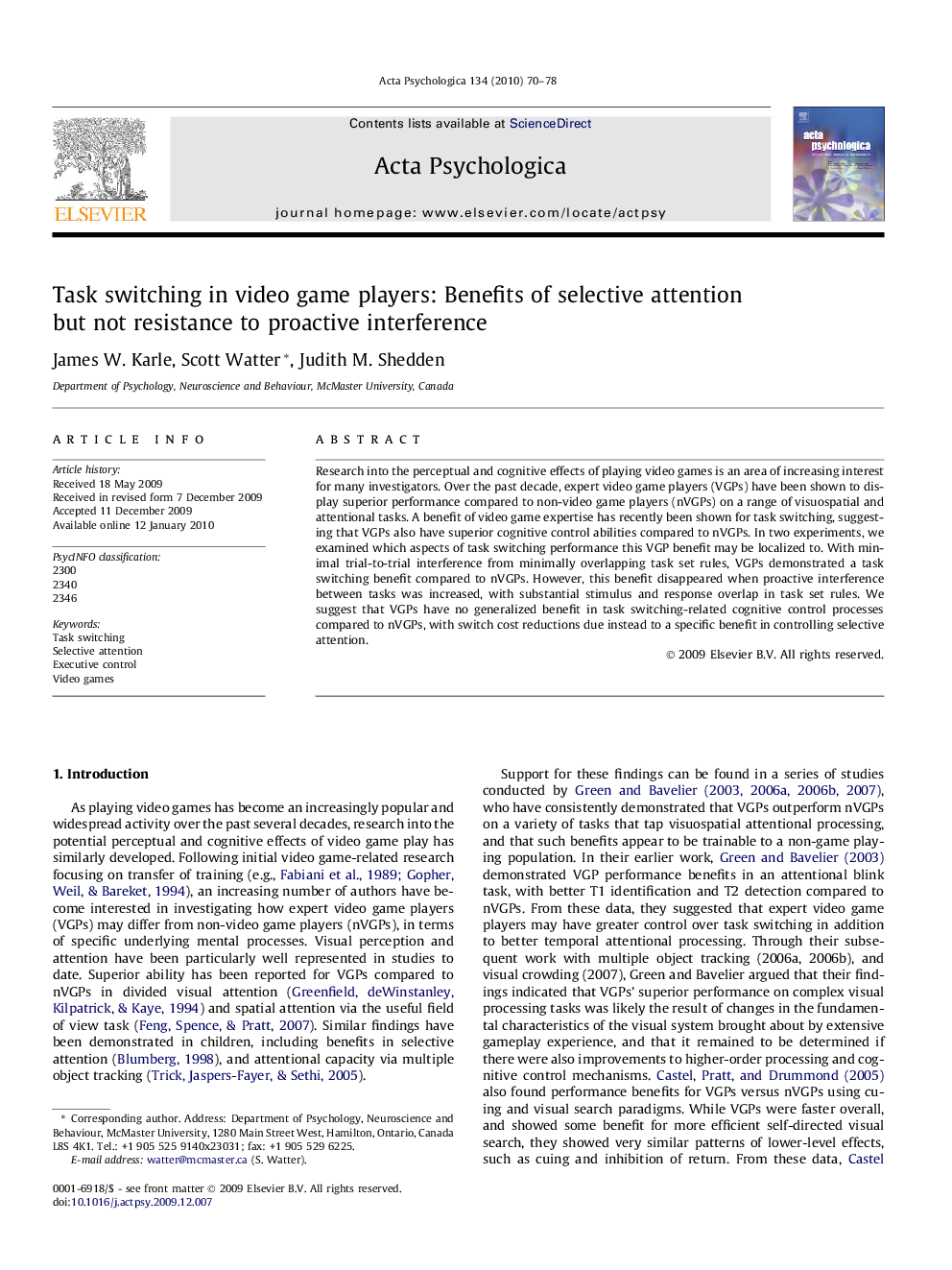| Article ID | Journal | Published Year | Pages | File Type |
|---|---|---|---|---|
| 920325 | Acta Psychologica | 2010 | 9 Pages |
Research into the perceptual and cognitive effects of playing video games is an area of increasing interest for many investigators. Over the past decade, expert video game players (VGPs) have been shown to display superior performance compared to non-video game players (nVGPs) on a range of visuospatial and attentional tasks. A benefit of video game expertise has recently been shown for task switching, suggesting that VGPs also have superior cognitive control abilities compared to nVGPs. In two experiments, we examined which aspects of task switching performance this VGP benefit may be localized to. With minimal trial-to-trial interference from minimally overlapping task set rules, VGPs demonstrated a task switching benefit compared to nVGPs. However, this benefit disappeared when proactive interference between tasks was increased, with substantial stimulus and response overlap in task set rules. We suggest that VGPs have no generalized benefit in task switching-related cognitive control processes compared to nVGPs, with switch cost reductions due instead to a specific benefit in controlling selective attention.
